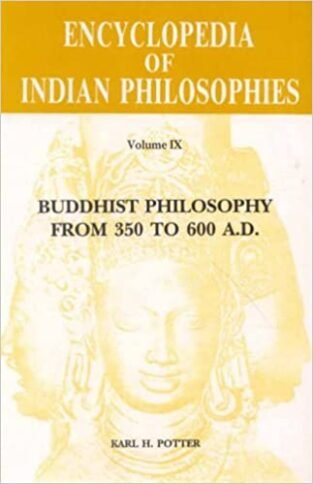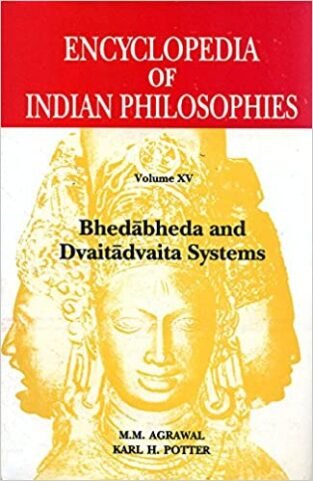- Empty cart.
- Continue Shopping

Encyclopedia of Indian Philosophies: Indian Philosophical Analysis Nyaya-Vaisesika from Gangesa to Raghunatha Siromani: Vol.6
₹1,800Current price is: ₹1,800.₹2,200 Original price was: ₹2,200.
Encyclopedia of Indian Philosophies: Indian Philosophical Analysis Nyaya-Vaisesika from Gangesa to Raghunatha Siromani: Vol.6
₹1,800Current price is: ₹1,800.₹2,200 Original price was: ₹2,200.
Hardcover ? 1 January 2016
In stock
The present volume of the Encyclopedia of Indian Philosophies takes up the history of Nyaya-Vaisesika where Volume Two left off, in the 14th century. With Gangesa we enter the literature that has come to be known as Navyanyaya, i.e., ‘new Nyaya.’ Gangesa’s seminal work, the Tattvacintamani, is one of the most famous, as well as most difficult, works of Indian Philosophy and this Volume begins with the most exhaustive account of its contents hitherto available. Over a dozen different summarizers have collaborated in preparing this treatise which totals some 300 pages.
The volume reconstructs the development of Nyaya-Vaisesika through the next two centuries. Some fifty author’s names are known to us from this period, and 36 of their works are summarized. The volume closes its reconstruction of literary history into the early 16th century, with Raghunatha Siromani, the great commentator on Gangesa’s seminal works and one of the most innovative analytical philosophers and the world has known.
Although this is but a brief attempt to cover the complex literature of this period, this Volume represents the basic elements of present-day understanding of the contributions of the philosophers discussed. A detailed introduction by the two Editors provides a bird’s-eye view of the ideas expounded in the text. A total of 22 different scholars combine to render the gist of these materials available to the general public. Subsequent volumes in this series will take Nyaya-Vaisesika to the present. Contents: Preface, PART One: Introduction to the Philosophy of Navya-Nyaya, PART Two: Summaries of Works, Notes, Index.
About the Author
| Weight | 1.8 kg |
|---|
Only logged in customers who have purchased this product may leave a review.











Reviews
There are no reviews yet.